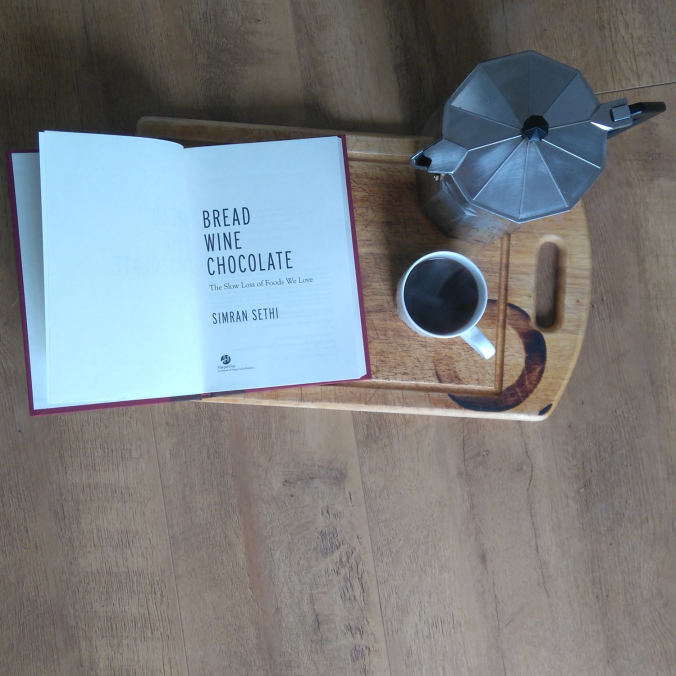At the beginning of the year Sethi’s book “Bread wine chocolate – the slow loss of foods we love” arrived on my doormat. Of course I was excited. I was promised a convincing excuse to indulge in some naughty pleasures. Not that I need an excuse. And it did not disappoint. Her book takes us on a journey over the world. We stand eye to eye with the plants, the producers, the lovers of food. And with the undeniable disappearance of the variety in edible plants.

Bread wine chocolate book review
The need for things to taste, look and smell as expected drives food producers to select a small variety of plant species and to standardise their production methods. The small range of plant variety we are left with does not always bring us the best taste or indeed responds best to the environment we want to grow in. Compare your options of potatoes at the supermarket to that of a seed catalogue. The choice in form, colour, taste and growing conditions of those in the seed catalogue is astounding. While the supermarket offers a rather limited range. Sethi manages to provide us with a very personal story which is packed with facts that show us that it is time to demand more. Try more new things. Support the rare and unexpected. Her message is clear and convincing. A simple can-do call for action.
The book is an easy read while filled with numbers handpicked from socio-dynamics and genetics. What I personally could have done without are her notes on how to taste the different foods and drinks described. Although it is an attempt to get us to be aware of what we taste, it touches too much on food snobbery for my liking. Luckily she includes some honest accounts of her own failure to engage her sense of smell on occasion. And she quickly puts things into perspective when she discusses wine tasting. “We don’t need to overthink this experience or make it harder than it is. It’s fermented grape juice.” These down to earth statements and personal notes are a relief from the somewhat serious and even at times depressing matter at hand.
Besides Sethi’s staples – wine, chocolate, coffee, beer and bread- we only eat a very limited range of potentially edible species. When I first discovered the Plants For A Future database I was astounded by the amount of plants that were rated as tasty, yet I had never heard of. And I am not the only one to go on a journey for new tastes. Rare seeds are popular lately among gardeners. Most likely thanks to some ambassadors we see on our TV such as James Wong and Mark Diacono. This trend means novel products – such as last year’s inclusion Agretti ‘Roscano’ in Chiltern’s seed catalogue – sell out quickly. I would say, join the craze. Read Sethi’s book if you are not familiar with agrobiodiversity or the loss of it. Plant some edibles in your garden that you have never heard off. Cook the unknown. And be part of a driving force of preserving some excitement on our plates.